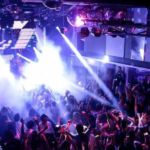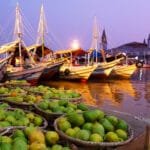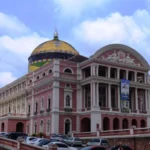


ORIGINS
Amazonian Jews (Hebrew: יהודי אמזונאס, “Yehudei Amazonas”; Spanish: judíos amazónicos; Portuguese: judeus amazônicos) is the name for the mixed-race people of Jewish Moroccan and indigenous descent who live in the Amazon basin cities and river villages of Brazil and Peru, including Belém, Santarém, Alenquer, Óbidos, and Manaus, Brazil; and Iquitos in Peru. They married indigenous women and their descendants are of mixed race (mestizo). In the 21st century, Belém has about 1000 Jewish families and Manaus about 140 such families, most descended from these 19th-century Moroccans.


Rabbi Shalom Imanuel Muyal, who lived in Brazil for two years prior to his death, has come to be considered a holy man, healer and folk saint, admired by non-Jews in Brazil. He is referred as “Santo Moisézinho” (Saint Little Moses). Jewish religious authorities in Morocco decided to they should have one of their rabbis in Brazil to raise funds for a yeshiva and ensure the Jewish community there was keeping to religious norms and practice, and Rabbi Muyal was sent over. When he died in Manaus in 1910, two years after arriving and probably from yellow fever, he was buried in a Christian cemetery as no Jewish one existed locally. After his death, he started to be revered as a saint by local Catholics and people began making pilgrimage to his grave. This led to the Manaus rabbi building a wall around the tomb, which only made the visitors more numerous. In the 1960s, the nephew of Rabbi Muyer who was then serving as a Minister in the government of the State of Israel wanted to exhume the rabbi’s remains and reinter them in a Jewish cemetery. This led to the outbreak of protests, and the Amazonas government asked that his body not be moved.



ITINERARY


Visit to Synagogue Beth Yacoov
Visit to Beit Chabad
Visit to the Jewish cemitery
Visit to the Amazon Opera house to finish















Site Desenvolvido por: 🚀 Agência Digital HGX Criação de Sites e Marketing Digital Criação de Sites e Marketing Digital
Obrigado pelo seu contato, retornaremos em breve! Thank you for contacting us, we will get back to you shortly!
Inscreva-se na minha newsletter para ver novas fotos, dicas e postagens do blog.